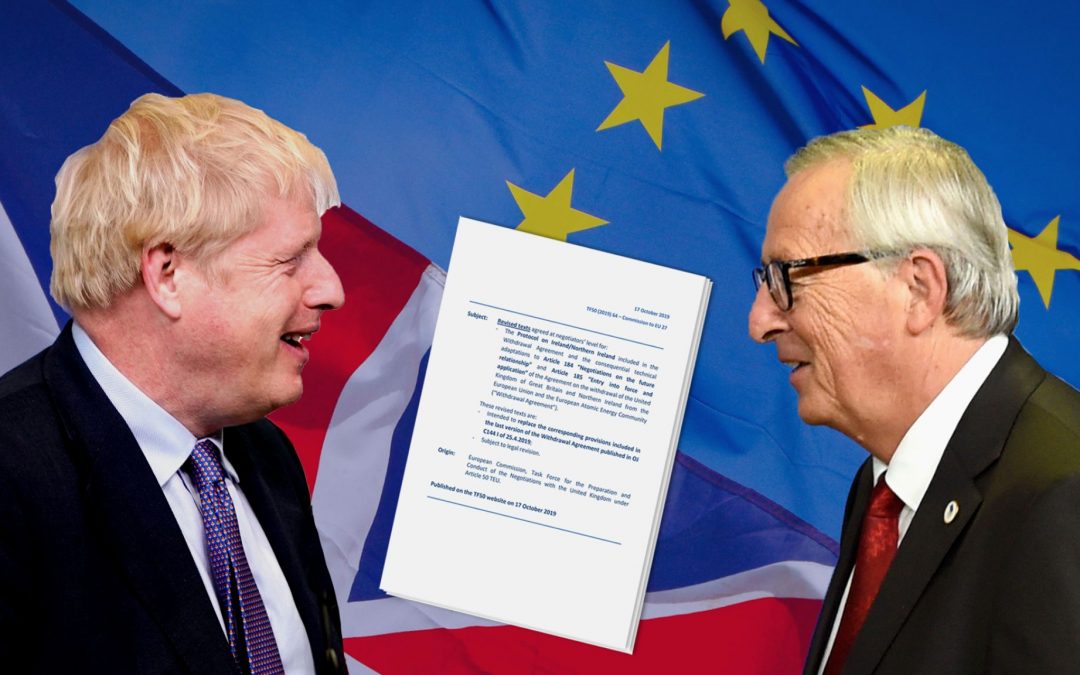After all the uncertainty and deadline extensions, Brexit finally looks like it will be concluded on December the 31st. This means that from January 2021, the transition period will officially be over and the trading relationship between the UK and the EU will change forever. Whilst we are still waiting to find out whether it will be a No-Deal Brexit or not, the government has already released information on the changes that are being made to the sale of overseas goods and sales made via online marketplaces. These changes will come into effect from January 2021. This article will outline exactly what changes are coming so you can prepare your cross-border trading business for Brexit.
The Border Operating Model, which was released in July, outlined major changes to the sale of overseas goods and sales through marketplaces. This was to ensure that non-UK businesses are treated in the same way as UK businesses, and also to improve the effectiveness of VAT collection and improve the customer experience.
The most recent announcement from the HRMC has added more clarity in the form of new regulations surrounding the treatment of the importation of goods not exceeding £135, as well as information on the sale of goods though online marketplaces.
Brexit Changes: Sales Made Without An Online Marketplace
For the sales that are made without the use of an online marketplace, the rules are relatively simple. From January 2021, when goods are being imported from outside the UK (in consignments not exceeding £135 in value) ‘import’ VAT will no longer be due, and instead ‘supply’ VAT will be required. In other words, VAT will switch from being collected at the point of importation to the point of sale instead.
In essence, goods sent from overseas and sold directly to UK consumers without marketplace involvement will be deemed to have been sold in the UK. The overseas seller will be required to register and account for the VAT to HMRC.
Before outlining the new Brexit changes for online marketplaces, it is worth pointing out here that these rules do not yet apply to Northern Ireland as negotiations are ongoing, and also this £135 limit marks the end of the Low Value Consignment relief. Further, this £135 figure is in regards to the entire total value of the consignment that is being sold, not the individual items within (excluding transport and delivery fees).
Brexit Changes: Sales Made With An Online Marketplace
If an online marketplace is used to facilitate the sale, then it will be the responsibility of the online marketplace to collect and account for the VAT. As with transactions without the marketplace, the value of the goods for VAT purposes will be based on the price they are sold to the consumer, rather than any value calculated at the point of importation.
However, this only applies to transactions that are in the form of a business-to-consumer sale. In the case of business-to-business transactions where the goods are stored outside of the UK, the online marketplace will not need to charge and account for VAT if the customer gives them their VAT registration number, and they confirm it’s correct using the new online service that will be available from December 2020. The online marketplace can add a note to the invoice (for example, by writing ‘reverse charge: customer to account for VAT to HMRC’) then send it to the UK business customer. The business customer will then be responsible for accounting for any VAT due on their VAT Return using a ‘reverse charge’ procedure, and will be able to recover the VAT as input tax on the same VAT Return under normal VAT recovery rules.
However, if the goods are stored in the UK, then the liability will fall again on the online marketplace for VAT.
Conclusion
Clearly, the Brexit changes have seen the government shift a lot of the responsibility on to the online marketplaces to determine who is responsible for the VAT. They will no need to know the location of the goods at the time of transactions, whether the transaction is over £135, and also whether the customer is VAT registered.
This means it is worth having all this information organised and at hand if you should be using an online market place for cross-border sales into the UK.
Here at J & P Accountants, we understand that the prospect of trying to comply with all those tax regulations can be daunting. But that’s where we come in.
If you are a business who participates in cross border e-commerce, we would be more than happy to help you register for VAT, file your VAT returns, and help you comply with VAT in case your account faces any issues. At J&P, helping your business is our passion, and we understand that companies across the UK are at risk now more than ever. We are here to support you through the Coronavirus crisis and the busy festive period, so please do not hesitate to give us a call on 0161 637 1080 or send an e-mail to enquiries@jpaccountant.com.
